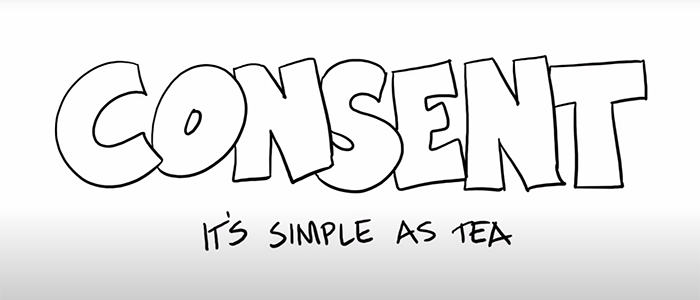Get support if you have been affected by sexual violence or harassment
Report an incident of sexual violence or harassment
The University of Glasgow is committed to the safety and wellbeing of every member of our community. If you or someone you know has been affected by sexual violence or harassment, the University is here to support you.
To access support, you can report an incident to the University.
A member of our First Responder team will be in touch to offer support and discuss your options.
If you would prefer to speak to someone
Student advice helpline:
0800 028 3766 (free 24 hour helpline)
Student crisis support:
0141 330 4444 (ext. 4444)
Speak to a counsellor
The Students' Representative Council (SRC) offers free sessions with a counsellor specialising in gender-based violence.
If you have been directly or indirectly affected by sexual violence or harassment, the counsellor can offer confidential support.
External support
If you would prefer not to speak to the University, there are external services that can offer support.
On-campus emergency contacts
University campus security:
- Gilmorehill: 0141 330 4444 (ext. 4444)
- Garscube: 0141 330 2222 (ext. 2222)
SafeZone app
Off-campus emergency contacts
Rape Crisis Scotland: 08088 01 03 02 (only between 6pm and midnight)
Police:
- 999 (emergency)
- 101 (non-emergency)
NHS24: 111
Supporting a survivor of sexual violence
If a friend or someone you care about is a survivor of sexual violence, you can be an important source of support.
What you can do:
- To respond effectively to a disclosure of sexual violence, you should provide a safe space that empowers the survivor to access what they need.
- Let the survivor take the lead- it is important that they are in control.
- Refer the survivor to sources of professional support.
- Look after yourself too.
Things to remember:
- It is important not to be judgemental, show disbelief or 'victim blame'. Don't probe for details, and don't try to take control.
- Don't push them into making decisions such as reporting to the police if they don't want to.
- Don't try to fix the problem, just show that you believe the survivor and ask them what they want to happen.
- Don't cast doubt on the disclosure. Less than 3% of sexual violence allegations are proven to be false.
Guidance if you receive a report
If you receive a report of sexual violence or harassment from a student, there is guidance on what to do:
Learning resources
This short online course provides information about gender-based violence, consent and bystander intervention.
Understanding sexual consent
What is sexual consent?
To give sexual consent, a person must willingly and freely agree to engage in a sexual activity and be able to make their own decisions.
Remember:
- A person who is incapacitated by drugs or alcohol cannot give consent to sexual activity
- A person who is asleep or unconscious cannot give consent to sexual activity
- Agreeing to engage in one form of sexual activity, e.g. kissing, does not indicate consent to all forms of sexual activity
- Consent can be withdrawn at any time
- Giving consent to sexual activity once does not indicate consent to that activity in the future
- Someone who is forced to do something against their will is not giving consent
Sexual activity without consent is rape or sexual assault.
Sexual consent: it's as simple as tea
Sexual violence prevention workshop
The SRC facilitate student-led sexual violence prevention workshops.
Let's Talk about Sexual Violence is a 2 hour collaborative and interactive workshop, free and open to all University of Glasgow students. Discussion is focused around sexual consent, what consent is and how to have clear communication around consent, as well as scenarios of potential consent violations and how we might understand these experiences.
Further information
Independent review of the University's approach to addressing gender-based violence
In 2022, Morag Ross KC undertook a thorough investigation and review of the University’s current staff and student procedures and support arrangements in relation to gender-based violence.


